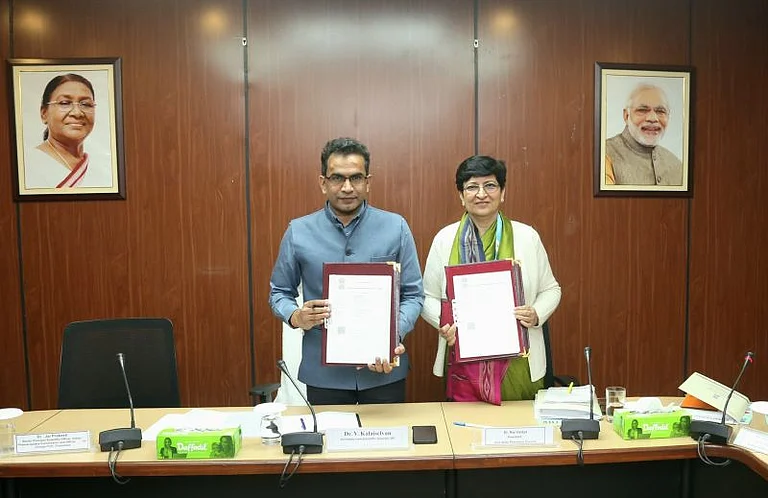IT was the third time in three years that a big business personality associated with Mumbai's historic textile mills had died at the hands of the underworld. On April 17, Vallabhabhai Thakkar, chairman of Raghuvanshi Mills Limited, was allegedly driving to meet a gangland chieftain when he was shot. The bullets that killed Thakkar were fired by the two men travelling with him in the rear seat of the car Thakkar died on the way to hospital.
Raghuvanshi Mills, a teeming 60-year-old complex in south-central Mumbai employs 750 people and in 1995-96 reported a turnover of Rs. 17 crore. But in February 1989, the mill had to close down and re-opened only in 1993 with the help of a revival package from the Bureau for Industrial and Financial Reconstruction. Because of the vast property under the control of the mill, Thakkar's murder was immediately labelled as more hard proof that the underworld is moving in to control lucrative mill areas.
Mumbai's underworld gangs have drawn much blood in the recent past. The brutal killings of personalities like popular trade union leader Datta Samant and industrialist Sunit Khatau for instance. In January'97, Samant was killed by four hired gunmen. A fusillade of bullets struck him just as his Tata Sumo jeep had moved a few yards from the family's bungalow in the north-east suburb of Powai. And three years ago, Sunit Khatau, owner of Khatau Mackanji Spinning & Weaving Company, was shot point-blank by two men at a traffic signal.
But last week's killing is said to be different. Govindrao Adik, president of the INTUC-affiliated Rashtriya Mill Mazdoor Sangh (RMMS), says Thakkar's killing had nothing to do with labour problems or the textile industry itself. "it is obvious that this is the outcome of personal dealings. It has nothing to do with his workers or the mill-there has been no proposal to sell land at Raghuvanshi," says Adik, suggesting that Thakkar's real estate business could have been the cause. And the Mill-owners Association, which represents the 32 private sector mills in the city, has not formally reacted to the Thakkar killing.
The government once again faces charges of inept law keeping. In defence, deputy Chief Minister Gopinath Munde, who also holds the Home portfolio, observed that the government could not do much when industrialists and businessmen had ties with gangsters. An allusion to the fact that the gunmen had come to Thakkar's mill at Lower Parel to escort him to their boss 'Mama' Sada Pawle. Police are not sure which of Thakkar's business concerns-textile mills or real estate development-led to his end. But it is clear that it certainly had to do with land, and the underworld--so obviously seated behind him.
Land is central to the emergence of the underworld in this area of business. Over the years, textile mills turned sick and have partially or completely closed. And mill-owners have been lobbying with the government for permission to sell their land. This has met with fierce resistance from the mill workers and their trade unions. Selling the land would give handsome profits to the owners, change a labour area into swanky commercial and residential complexes, but would throw the workers out on the streets, argue the unions. When mill managements needed to persuade recalcitrant workers, the underground hand materialised. Trouble is, sometimes the tactic ricocheted.
Just before the Thakkar killing, the issue of allowing mills to sell their surplus land was being debated in the state legislature.
Chief Minister Manohar Joshi introduced the subject with the plea that mills should be allowed to sell their surplus land. "We have to give permission in the interest of workers." This drew an angry response from the Congress and other Opposition parties. Joshi argued that he had brought up the subject at the suggestion of the RMMS leaders who were in favour of mill land sale. Adik observes that the chief minister omitted mentioning the union's conditions for surplus mill land sale: all money must be used for revival and modernisation of the mills; workers' dues must be paid and housing taken care; and there should be total transparency in the deal. "No blanket permission. We are for it only on these three conditions," says Adik.
While the issue hangs fire, the mill worker is up against the gangs that are trying to oust him from his traditional labour area--even as yuppiedom gets geared to move in and change the social and cultural complexion of the land.


























